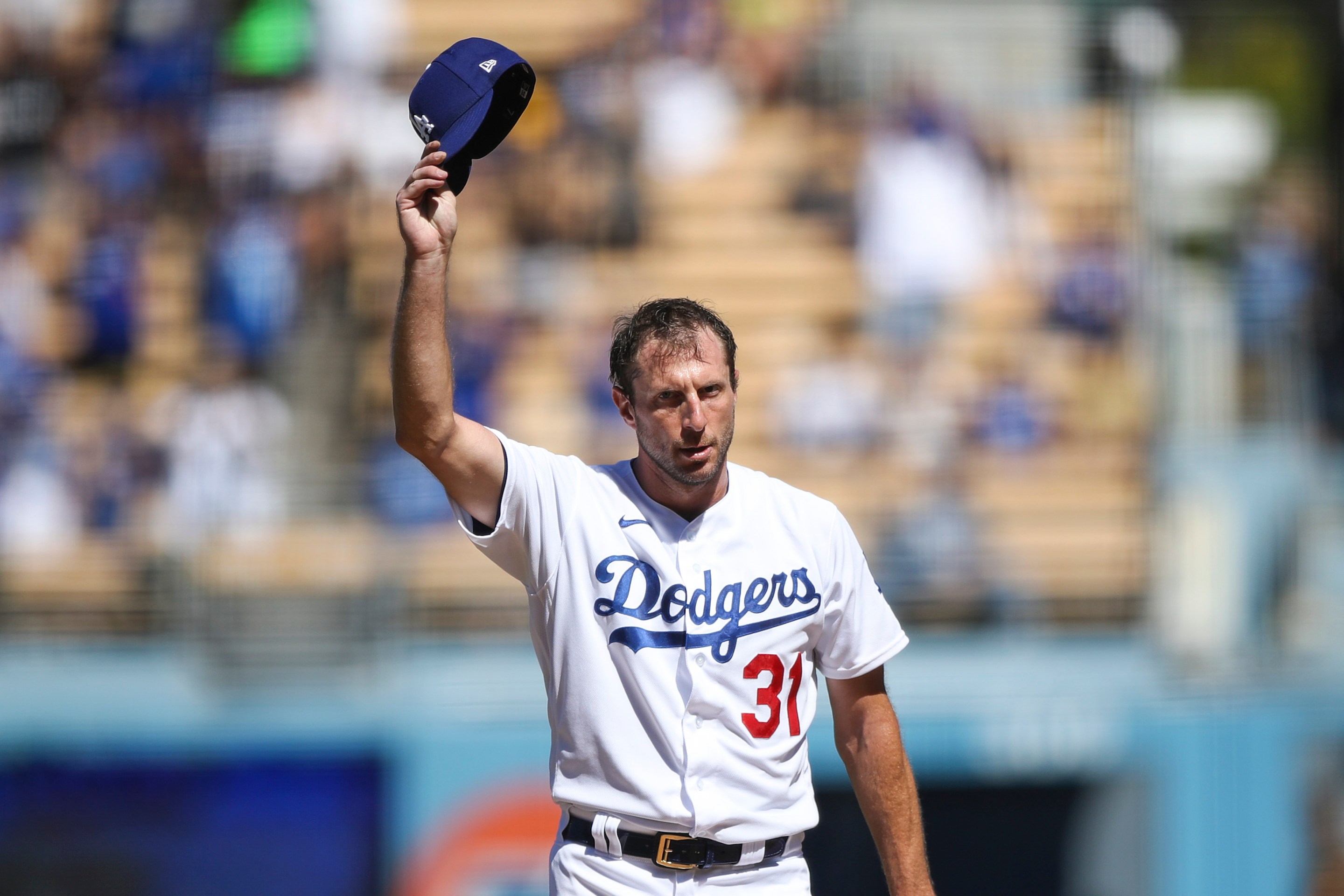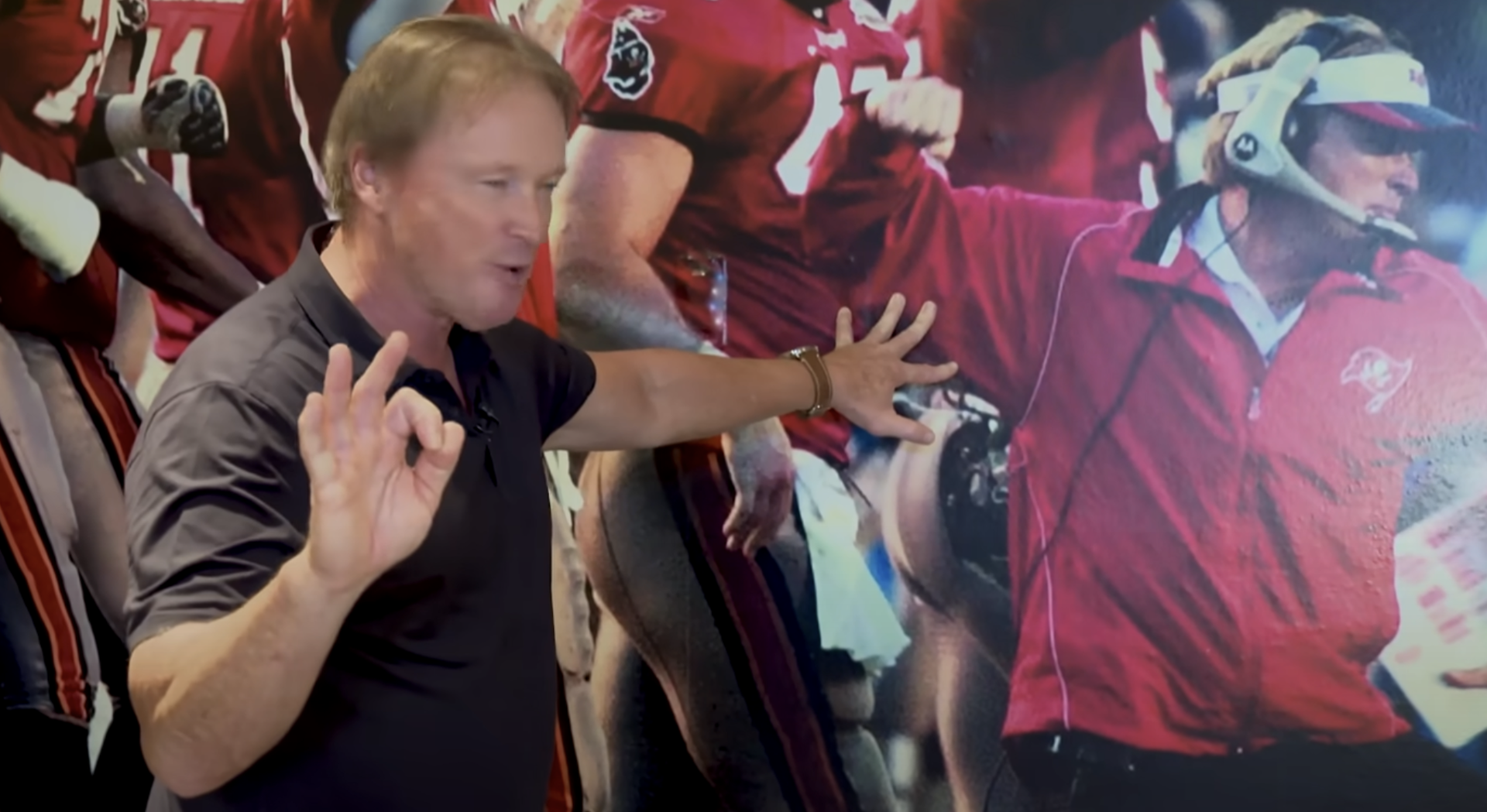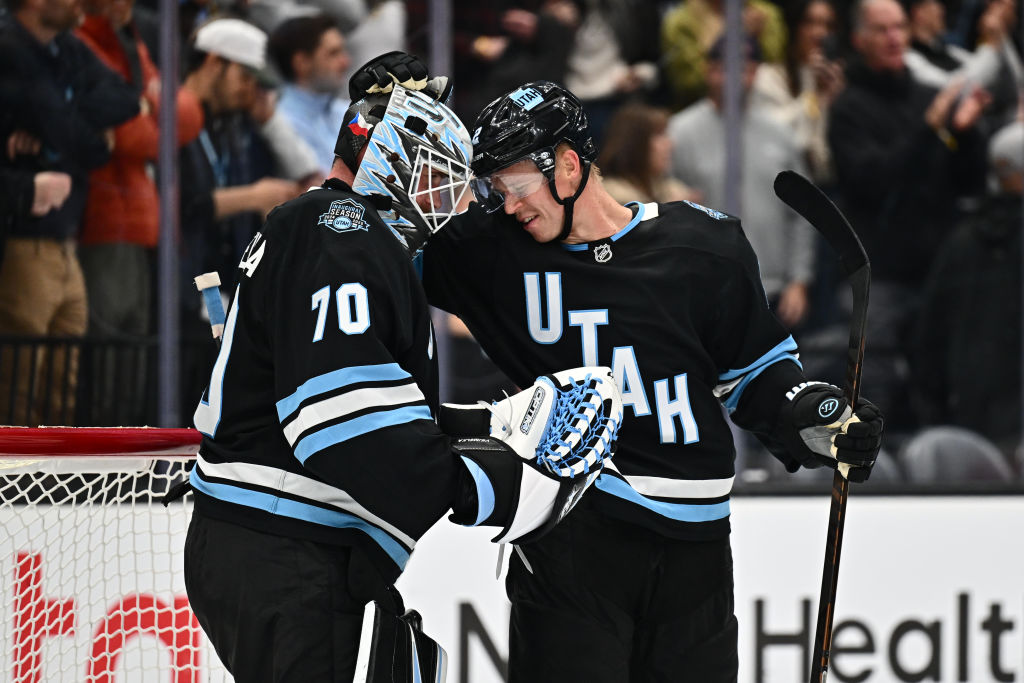Max Scherzer came into his start Sunday night against the San Diego Padres needing six strikeouts to reach 3,000 for his career. This was very nearly a sure thing, given both Scherzer's track record (he's had fewer than six strikeouts in just six of 65 starts since the start of the 2019 season) and his form down the stretch of this regular season (he hasn't added a loss or no-decision to his record since mid-July, since before he was even a member of these Dodgers). The Scherzer family was in the stands Sunday, because only a lightning bolt was going to keep Max from making history.
The big moment came in the fifth inning, when Eric Hosmer took a healthy cut at a 3-2 changeup and sailed his bat right over the top of it. You would not expect a pitcher's 3,000th career strikeout to be the third-most interesting part of that guy's start, but the brief little ceremony that followed Hosmer's whiff was an almost unwelcome interruption of and distraction from a suddenly more pressing matter: Scherzer, sweaty and scowling and stalking the infield grass, had faced the minimum number of batters to that point in the game. And at just 51 pitches through 4.2 innings, he had a reasonably realistic shot at chasing perfection.
But Scherzer's night was even cooler than that! In the second inning, facing the heart of San Diego's lineup, Scherzer fanned Fernando Tatis Jr. on three pitches, then blew away Hosmer on three pitches, and then struck out Tommy Pham, again on three pitches, to become just the third pitcher in history to record three career immaculate innings.
An immaculate inning en route to strikeout No. 3,000.
— MLB (@MLB) September 13, 2021
Max Scherzer continues to amaze us.
(MLB x @BudSelect) pic.twitter.com/rZxqdDVAs5
This was the 105th immaculate inning in the history of Major League Baseball. There've been 23 perfect games thrown, and you will note that both 105 and 23 are greater than 19, the number of pitchers who've reached 3,000 strikeouts in their careers. Ostensibly this would make the moment of that 3,000th strikeout a mighty big event in this or any other pitching performance, certainly worth dropping the snarl for a minute and allowing yourself to smile, worth acknowledging the applause with something other than the look my dad might've given me for spilling a bowl of cereal and milk all over the kitchen floor. I had a good time perusing the wire photos from Scherzer's big night, because they all look basically like this:

That is Max damn Scherzer, right there. The man is such a competitive sicko that nothing—not even the ultra-rarefied air of the 3,000-K club, and certainly not an extended ovation of appreciation from the home crowd—is going to pull him out of the crazy-man intensity that has fueled his excellence over a 14-year tear through the majors. Scherzer took his bid for perfection into the eighth inning, but manager Dave Roberts must've been at least a little relieved when Hosmer, during his third plate appearance of the night, pulled another inside changeup down the line in right for a one-out standup double. Trying to pull Scherzer from the mound during a perfect game, and while his arm is still attached at the shoulder, is the kind of thing that can leave a manager with bite marks.
When it was over, the closest Scherzer would get to reveling in the moment was to describe the accomplishment—the biggest of the accomplishments, the 19-guys-in-baseball-history accomplishment—as "a testament to durability." It certainly is that: Scherzer has taken the mound for at least 30 starts in all but three of his 14 seasons. One of those three was his rookie season, when the Diamondbacks needed several whole months to figure out that the eventual best pitcher of his generation was not, in fact, a middle reliever. Another was shortened by a by-God pandemic.
Every player in the 3,000-strikeout club was, by definition, durable as hell, even if when you see their names, for the most part you don't think, Now there was a durable fellow. Pedro Martinez was cooler than anyone. Greg Maddux was meticulous, like all the best nerds. Max Scherzer has been durable, but what I will remember is that he was too amped for the next at-bat to pause and appreciate the significance of a defining moment of his baseball career. Being able to stay on the mound is part of the story, but Scherzer got here by being a cussed, hell-fired son of a gun. It's neat and fitting that all these things should pile up in a single Scherzer outing, the long view tip-toeing in for a moment's recognition and being snarled away in favor of a chance to gun down the next mortal foolish enough to step into the batter's box.





